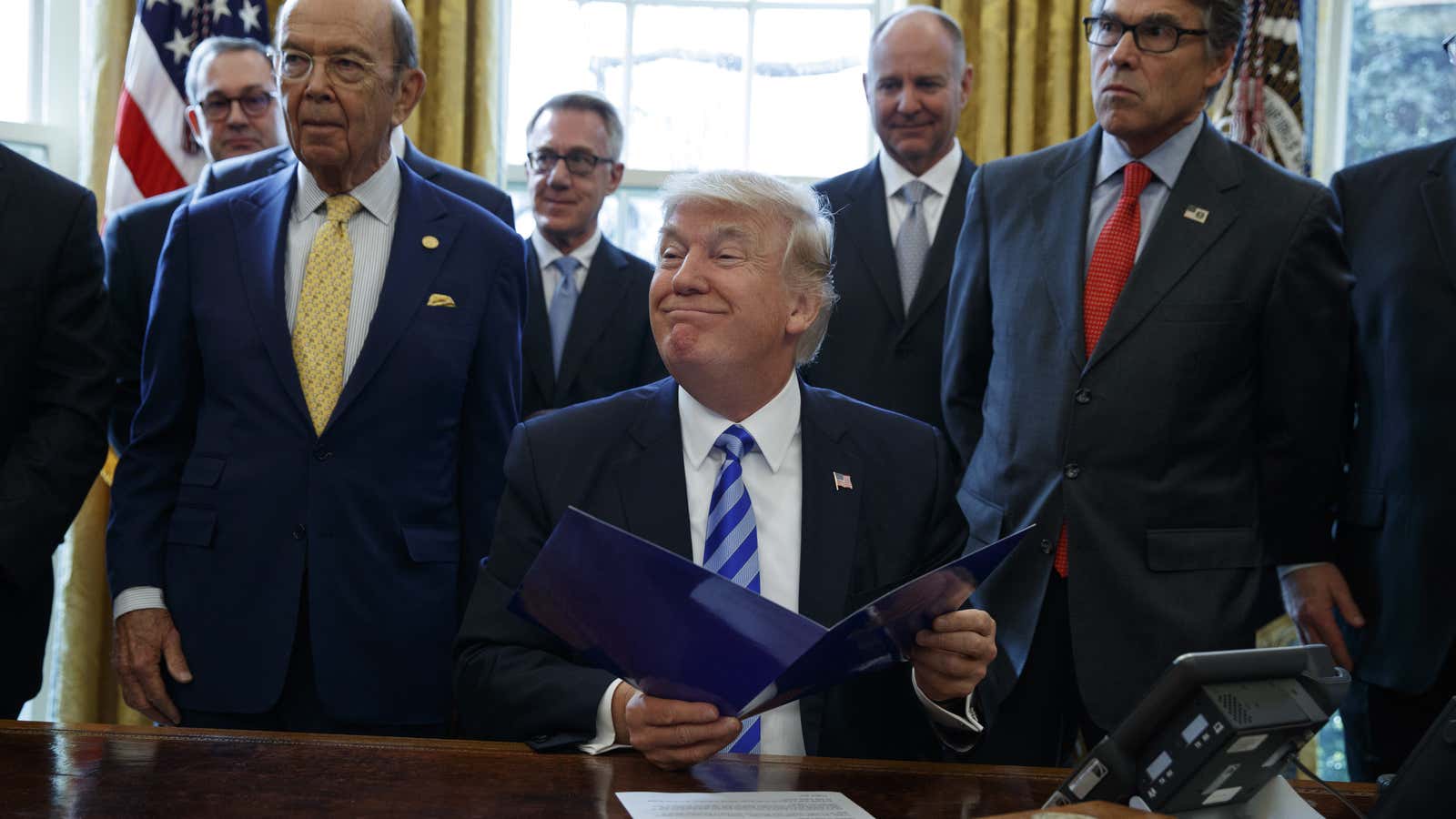US president Donald Trump on Friday approved the Keystone XL pipeline that his predecessor, Barack Obama, had suspended. That gives TransCanada Corp, the Canadian company that owns the pipeline, the go-ahead to complete the final part of a crude oil route cutting through the length of the continental US.
The pipeline will bring about $2.4 billion in revenue to Canada each year by helping the country’s oil-sands producers move 800,000 barrels of crude oil per day from land-locked Alberta to ports in Texas for exporting abroad. (Most of the pipeline is already built; the “XL” portion would connect Alberta to Nebraska.)
It is less clear what long-term benefit the pipeline will bring to the US. While Republicans have touted it as a major job producer, a US State Department report found that the pipeline would create 3,900 full-time construction jobs for one or two years while the pipeline is built. After that work dries up, 35 jobs would remain.
“Once the proposed Project enters service, operations would require an estimated 50 total employees: 35 permanent employees and 15 temporary contractors,” the State Department wrote back in 2014, before Obama denied TransCanada its permit.
Taking it a step further, a 2011 report from Cornell University concluded that the Keystone XL pipeline could actually destroy more jobs than it created. That’s because Midwesterners could wind up paying 10 to 20 cents more per gallon of gasoline if the pipeline diverts crude oil from Midwestern refineries down to those in the Gulf of Mexico region. And it probably will, the researchers write, because oil refined on the Gulf can be sold for a higher price to export markets. That will cost the Midwest up to $2-$4 billion in higher crude prices annually, “escalating for several years,” according to information Cornell received from TransCanada. That would “suppress other spending and will therefore cost jobs,” the Cornell researchers write.
